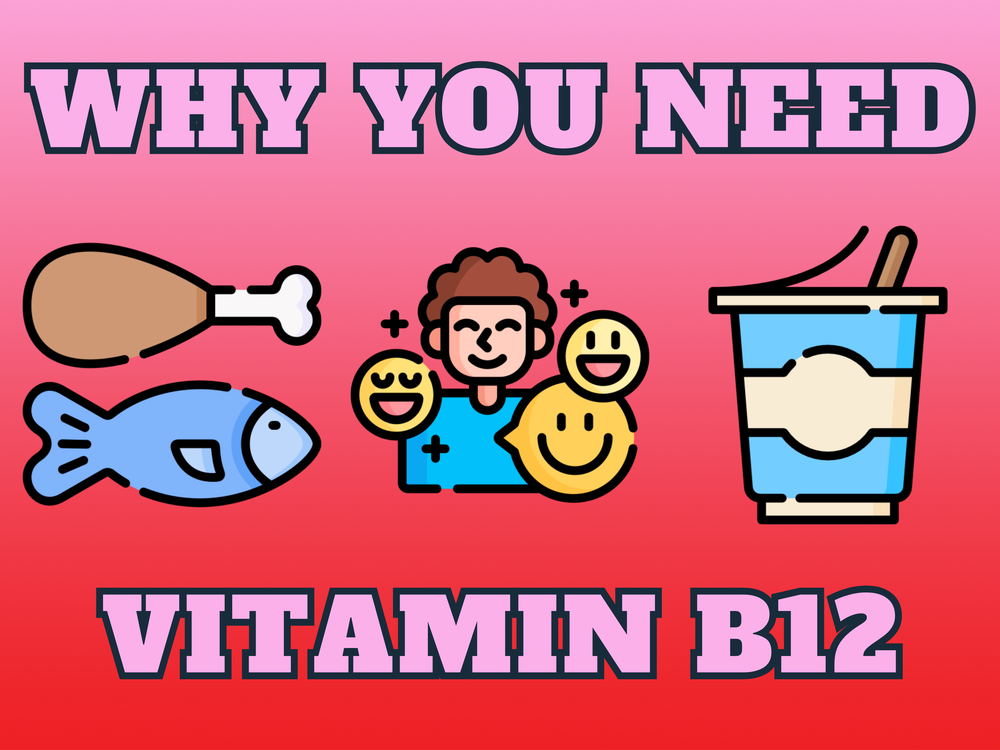
Introduction
Vitamin B12, also known as cobalamin, is an essential vitamin only found in animal source foods. The body cannot produce vitamin B12 on its own, so you must consume it, either through food or supplementation. Meat, fish, dairy, and eggs are all great natural sources of vitamin B12, and some foods, such as marmite and nutritional yeast, are fortified with this essential vitamin.

Vitamin B12, as well as Vitamin C and the rest of the B vitamins, are all water soluble. This means that (unlike vitamins A, D, E, and K), vitamin B12 doesn't need to be consumed with fat to be fully absorbed. It also means that any excess will simply be excreted through urine, so there's little to no risk in "overdosing" on vitamin B12.
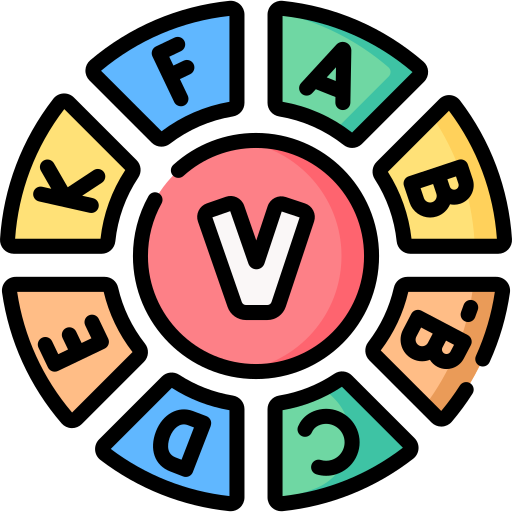
High Vitamin B12 Foods

Role of B12
Vitamin B12 plays a crucial role in nervous system health, energy production, and red blood cell formation. Without adequate levels of vitamin B12, you may end up anemic, as without proper red blood cell formation, your body will struggle to adequately delivery oxygen to its cells. The human body destroys and replaces about 1% of its red blood cells daily, and requires both vitamins B9 (folate) and B12 to produce new ones.
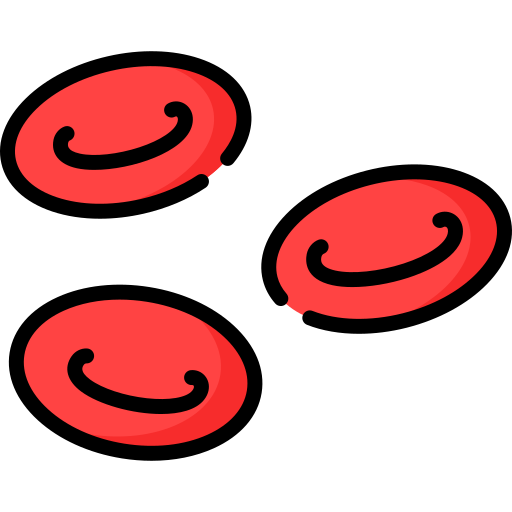
Additionally, vitamin B12 supports brain and memory function, as B12 aids in maintaining healthy nerve cells. It's also crucial for bone health, vision, and mood. Finally, B12 assists in the conversion of food into energy, particularly from fats and proteins.

Benefits of Vitamin B12

How Does the Body Absorb B12?

Malabsorption
Certain conditions, genetics, or lifestyle factors can inhibit the absorption of vitamin B12. For example, Pernicious Anemia is an autoimmune condition where the body lacks the protein needed to absorb B12. Diseases infecting the intestines, such as Celiac or Crohn's disease, as well as parasites and bad gut bacteria can all cause malabsorption of vitamin B12 as well. Other autoimmune conditions are linked with low levels of vitamin B12, such as Lupis and Graves' disease.
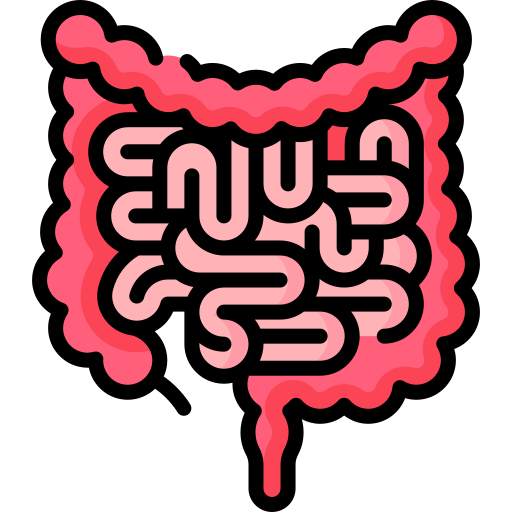
Alcohol also impairs the body's ability to properly absorb vitamin B12, as well as many other vitamins and minerals. Additionally, heartburn medicines such as proton pump inhibitors block the body's ability to absorb vitamin B12. Over the counter antacids, such as Tums, also impede vitamin B12 absorption, so it's best to get your blood levels tested if you take them regularly.
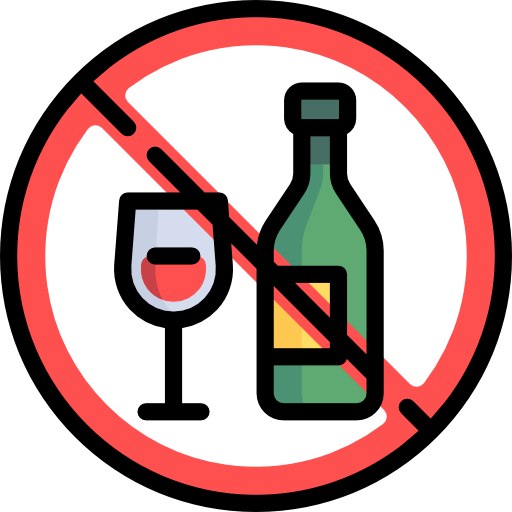
Symptoms of Low B12

Vitamin B12 Supplementation
As mentioned, vitamin B12 only comes from animal sourced foods, such as meat, fish, dairy, and eggs. Therefore, if you're vegetarian, and especially if you're vegan, it is absolutely essential that you consume a vitamin B12 supplement. Your body can store B12 in the liver for up to 5 years. You may be feeling fine now, but you could be slowly depleting your vitamin B12 stores without even knowing it by being on an exclusively plant-based diet.
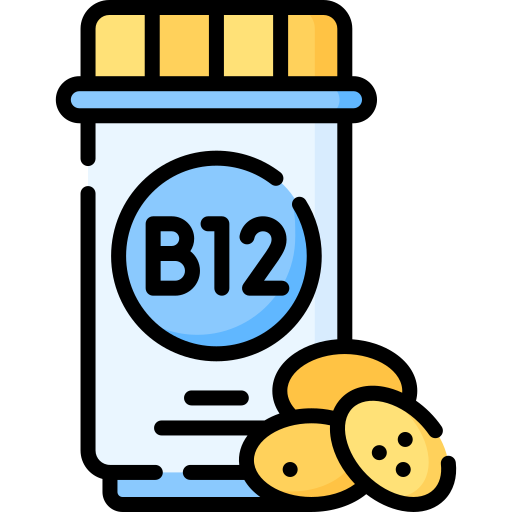
As always though, consult with your doctor and get your blood levels tested. Since vitamin B12 is a water soluble vitamin, there's no risk of taking "too much". Typically, vitamin B12 can be found in most multivitamins, but you can take a dedicated B12 supplement as well. Most B12 pills will contain over 1,000% of your daily value (DV) of this essential vitamin. Any excess in the body will simply be peed out.

Daily Consumption

Foods High In Vitamin B12
Meat (raw)

Fish and Seafood (Raw unless specified)

Dairy

Other
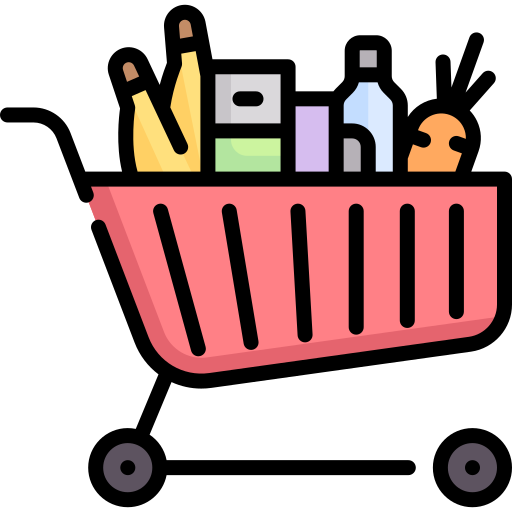
Best Sources of B12 (Not Fortified)
Per serving: Beef Liver - 67.01 mcg (4 oz, 113 g)
Per 100 g: Beef Liver - 59.3 mcg
Per 100 cal: Beef Liver - 43.94 mcg
Best Sources of B12 (Fortified)
Per serving: Nutritional Yeast - 18.76 mcg (1 tbsp, 5 g)
Per 100 g: Nutritional Yeast - 375.29 mcg
Per 100 cal: Nutritional Yeast - 99.83 mcg

Wrapping it Up
Vitamin B12 (Colbalamin) is an essential water soluble vitamin found preominantly in animal source foods, like meat, dairy, eggs, and fish. It plays a large role in energy production, as B12 helps your body convert food into glucose, which is why many vegans or people deficient in vitamin B12 may have low energy. It is also important for brain, nervous system, heart, and bone health. The RDA is 2.4 mcg.
Benefits

Sources
This post may contain affiliate linksVitamin B12, also known as cobalamin, is an essential vitamin only found in animal source foods. The body cannot produce vitamin B12 on its own, so you must consume it, either through food or supplementation. Meat, fish, dairy, and eggs are all great natural sources of vitamin B12, and some foods, such as marmite and nutritional yeast, are fortified with this essential vitamin.

Vitamin B12, as well as Vitamin C and the rest of the B vitamins, are all water soluble. This means that (unlike vitamins A, D, E, and K), vitamin B12 doesn't need to be consumed with fat to be fully absorbed. It also means that any excess will simply be excreted through urine, so there's little to no risk in "overdosing" on vitamin B12.

High Vitamin B12 Foods

Role of B12
Vitamin B12 plays a crucial role in nervous system health, energy production, and red blood cell formation. Without adequate levels of vitamin B12, you may end up anemic, as without proper red blood cell formation, your body will struggle to adequately delivery oxygen to its cells. The human body destroys and replaces about 1% of its red blood cells daily, and requires both vitamins B9 (folate) and B12 to produce new ones.

Additionally, vitamin B12 supports brain and memory function, as B12 aids in maintaining healthy nerve cells. It's also crucial for bone health, vision, and mood. Finally, B12 assists in the conversion of food into energy, particularly from fats and proteins.

Benefits of Vitamin B12
- Increase blood cell formation
- Benefit cognition and memory
- Produce APT
- Aid in bone health and preventing osteoporosis
- Regulate mood
- Support myelination of the nervous system
- Improve hair, skin, and nails
- Aid in DNA synthesis
- Improve cell metabolism
- Protect against birth issues
- Reduce risk of macular degeneration
- Improve mood and symptoms of depression
- Increase energy levels

How Does the Body Absorb B12?
- Hydrochloric acid (HCl) in the stomach removes vitamin B12 from the food
- B12 combines with a protein made in the stomach called "intrinsic factor"

Malabsorption
Certain conditions, genetics, or lifestyle factors can inhibit the absorption of vitamin B12. For example, Pernicious Anemia is an autoimmune condition where the body lacks the protein needed to absorb B12. Diseases infecting the intestines, such as Celiac or Crohn's disease, as well as parasites and bad gut bacteria can all cause malabsorption of vitamin B12 as well. Other autoimmune conditions are linked with low levels of vitamin B12, such as Lupis and Graves' disease.

Alcohol also impairs the body's ability to properly absorb vitamin B12, as well as many other vitamins and minerals. Additionally, heartburn medicines such as proton pump inhibitors block the body's ability to absorb vitamin B12. Over the counter antacids, such as Tums, also impede vitamin B12 absorption, so it's best to get your blood levels tested if you take them regularly.

Symptoms of Low B12
- Fatigue
- Muscle weakness
- Tingling
- Numbness
- Memory problems
- Poor concentration
- Mood swings
- Depression
- Anxiety
- Shortness of breath
- Diziness
- Migraines
- Low energy
- Pale or yellow skin
- Sore or swollen tounge
- Lightheadedness
- Heart palipitations
- Constipation
- Diarrhea
- Loss of appetite
- Gas
- Bluish or gray-brown nails
- Problems walking or speaking
- Vision loss
- Irritability
- Anemia
- Vomiting
- Weight loss
- Behavior changes
- Erectile dysfunction

Vitamin B12 Supplementation
As mentioned, vitamin B12 only comes from animal sourced foods, such as meat, fish, dairy, and eggs. Therefore, if you're vegetarian, and especially if you're vegan, it is absolutely essential that you consume a vitamin B12 supplement. Your body can store B12 in the liver for up to 5 years. You may be feeling fine now, but you could be slowly depleting your vitamin B12 stores without even knowing it by being on an exclusively plant-based diet.

As always though, consult with your doctor and get your blood levels tested. Since vitamin B12 is a water soluble vitamin, there's no risk of taking "too much". Typically, vitamin B12 can be found in most multivitamins, but you can take a dedicated B12 supplement as well. Most B12 pills will contain over 1,000% of your daily value (DV) of this essential vitamin. Any excess in the body will simply be peed out.

Daily Consumption
- Men: 2.4 mcg
- Women: 2.4 mcg
- Pregnant: 2.6 mcg
- Breastfeeding: 2.8 mcg
- Optimal Blood Levels: 500 - 1300 pg/ml

Foods High In Vitamin B12
| Food | Serving Size | Vitamin B12 Per Serving |
Vitamin B12 Per 100 g |
Vitamin B12 Per 100 cal |
|---|---|---|---|---|
| Beef Liver | 4 oz (113 g) |
67.01 mcg (2792 %) |
59.3 mcg (2471 %) |
43.94 mcg (1831 %) |
| Chicken Breast (Boneless & Skinless) |
4 oz (113 g) |
0.24 mcg (10 %) |
0.21 mcg (9 %) |
0.17 mcg (7 %) |
| Chicken Liver | 4 oz (113 g) |
18.74 mcg (781 %) |
16.58 mcg (691 %) |
13.93 mcg (580 %) |
| Chicken Thighs (Boneless & Skinless) |
4 oz (113 g) |
0.69 mcg (28 %) |
0.61 mcg (25 %) |
0.5 mcg (21 %) |
| Eggs | 1 egg (50 g) |
0.51 mcg (21 %) |
1.02 mcg (42 %) |
0.69 mcg (28 %) |
| Ground Beef (93% Lean) |
4 oz (113 g) |
2.52 mcg (105 %) |
2.23 mcg (93 %) |
1.47 mcg (61 %) |
| Ground Turkey (93% Lean) |
4 oz (113 g) |
1.36 mcg (57 %) |
1.2 mcg (50 %) |
0.8 mcg (33 %) |
| Pork Liver | 4 oz (113 g) |
29.38 mcg (1224 %) |
26.0 mcg (1083 %) |
19.4 mcg (808 %) |
| Pork Tenderloin | 4 oz (113 g) |
0.58 mcg (24 %) |
0.51 mcg (21 %) |
0.47 mcg (19 %) |
| Venison | 4 oz (113 g) |
7.13 mcg (297 %) |
6.31 mcg (263 %) |
5.26 mcg (219 %) |

Fish and Seafood (Raw unless specified)
| Food | Serving Size | Vitamin B12 Per Serving |
Vitamin B12 Per 100 g |
Vitamin B12 Per 100 cal |
|---|---|---|---|---|
| Anchovies (Canned) |
1.6 oz (45 g) |
0.4 mcg (17 %) |
0.88 mcg (37 %) |
0.42 mcg (18 %) |
| Clams (Canned) |
3 oz (85 g) |
10.79 mcg (450 %) |
12.69 mcg (529 %) |
11.75 mcg (490 %) |
| Cod | 3 oz (85 g) |
0.77 mcg (32 %) |
0.91 mcg (38 %) |
1.11 mcg (46 %) |
| Crab (Canned) |
3 oz (85 g) |
2.83 mcg (118 %) |
3.33 mcg (139 %) |
4.01 mcg (167 %) |
| Cuttlefish | 3 oz (85 g) |
2.55 mcg (106 %) |
3.0 mcg (125 %) |
3.8 mcg (158 %) |
| Haddock | 3 oz (85 g) |
1.56 mcg (65 %) |
1.83 mcg (76 %) |
2.47 mcg (103 %) |
| Halibut | 3 oz (85 g) |
0.94 mcg (39 %) |
1.1 mcg (46 %) |
1.21 mcg (51 %) |
| Herring | 3 oz (85 g) |
11.62 mcg (485 %) |
13.67 mcg (570 %) |
8.65 mcg (361 %) |
| Lobster | 3 oz (85 g) |
1.06 mcg (44 %) |
1.25 mcg (52 %) |
1.62 mcg (68 %) |
| Mackerel (Canned) |
3 oz (85 g) |
5.9 mcg (246 %) |
6.94 mcg (289 %) |
4.45 mcg (185 %) |
| Mussels | 3 oz (85 g) |
10.2 mcg (425 %) |
12.0 mcg (500 %) |
13.96 mcg (582 %) |
| Octopus | 3 oz (85 g) |
17.0 mcg (708 %) |
20.0 mcg (833 %) |
24.4 mcg (1016 %) |
| Oysters | 3 oz (85 g) |
7.44 mcg (310 %) |
8.75 mcg (365 %) |
17.16 mcg (716 %) |
| Salmon | 3 oz (85 g) |
2.7 mcg (112 %) |
3.18 mcg (132 %) |
2.24 mcg (93 %) |
| Sardines (Canned) |
3 oz (85 g) |
7.6 mcg (316 %) |
8.94 mcg (372 %) |
4.3 mcg (179 %) |
| Scallops | 3 oz (85 g) |
1.2 mcg (50 %) |
1.41 mcg (59 %) |
2.04 mcg (85 %) |
| Shrimp | 3 oz (85 g) |
0.94 mcg (39 %) |
1.11 mcg (46 %) |
1.56 mcg (65 %) |
| Squid | 3 oz (85 g) |
1.11 mcg (46 %) |
1.3 mcg (54 %) |
1.41 mcg (59 %) |
| Tilapia | 3 oz (85 g) |
1.34 mcg (56 %) |
1.58 mcg (66 %) |
1.65 mcg (69 %) |
| Tuna (Canned) |
4 oz (113 g) |
2.88 mcg (120 %) |
2.55 mcg (106 %) |
2.97 mcg (123 %) |

Dairy
| Food | Serving Size | Vitamin B12 Per Serving |
Vitamin B12 Per 100 g |
Vitamin B12 Per 100 cal |
|---|---|---|---|---|
| Blue Cheese | 1 oz (28 g) |
0.34 mcg (14 %) |
1.22 mcg (51 %) |
0.35 mcg (14 %) |
| Cheddar Cheese | 1 oz (28 g) |
0.31 mcg (13 %) |
1.1 mcg (46 %) |
0.27 mcg (11 %) |
| Cottage Cheese (Nonfat) |
1/2 cup (113 g) |
0.52 mcg (21 %) |
0.46 mcg (19 %) |
0.64 mcg (26 %) |
| Cottage Cheese (Whole Milk) |
1/2 cup (113 g) |
0.49 mcg (20 %) |
0.43 mcg (18 %) |
0.44 mcg (18 %) |
| Feta Cheese | 1 oz (28 g) |
0.47 mcg (20 %) |
1.69 mcg (70 %) |
0.64 mcg (26 %) |
| Greek Yogurt (Plain Nonfat) |
3/4 cup (170 g) |
1.28 mcg (53 %) |
0.75 mcg (31 %) |
1.27 mcg (53 %) |
| Greek Yogurt (Plain Whole Milk) |
3/4 cup (170 g) |
1.28 mcg (53 %) |
0.75 mcg (31 %) |
0.77 mcg (32 %) |
| Milk (Skim) |
1 cup (240 g) |
1.2 mcg (50 %) |
0.5 mcg (21 %) |
1.47 mcg (62 %) |
| Milk (Whole) |
1 cup (240 g) |
1.08 mcg (46 %) |
0.45 mcg (19 %) |
0.74 mcg (31 %) |
| Mozzarella Cheese (Low Moisture Part-Skim) |
1 oz (28 g) |
0.37 mcg (15 %) |
1.33 mcg (55 %) |
0.44 mcg (18 %) |
| Parmesan Cheese | 1 oz (28 g) |
0.37 mcg (15 %) |
1.33 mcg (55 %) |
0.31 mcg (13 %) |
| Swiss Cheese | 1 oz (28 g) |
0.86 mcg (36 %) |
3.06 mcg (128 %) |
0.78 mcg (33 %) |

Other
| Food | Serving Size | Vitamin B12 Per Serving |
Vitamin B12 Per 100 g |
Vitamin B12 Per 100 cal |
|---|---|---|---|---|
| Marmite | 1/2 tsp (4 g) |
0.02 mcg (1 %) |
0.5 mcg (21 %) |
0.27 mcg (11 %) |
| Nutritional Yeast | 1 tbsp (5 g) |
18.76 mcg (782 %) |
375.29 mcg (15637 %) |
99.83 mcg (4159 %) |

Per serving: Beef Liver - 67.01 mcg (4 oz, 113 g)
Per 100 g: Beef Liver - 59.3 mcg
Per 100 cal: Beef Liver - 43.94 mcg
Best Sources of B12 (Fortified)
Per serving: Nutritional Yeast - 18.76 mcg (1 tbsp, 5 g)
Per 100 g: Nutritional Yeast - 375.29 mcg
Per 100 cal: Nutritional Yeast - 99.83 mcg

Wrapping it Up
Vitamin B12 (Colbalamin) is an essential water soluble vitamin found preominantly in animal source foods, like meat, dairy, eggs, and fish. It plays a large role in energy production, as B12 helps your body convert food into glucose, which is why many vegans or people deficient in vitamin B12 may have low energy. It is also important for brain, nervous system, heart, and bone health. The RDA is 2.4 mcg.
Benefits
- Energy production
- Red blood cell formation
- Nervous system health
- Brain function
- DNA synthesis
- Heart health

Sources